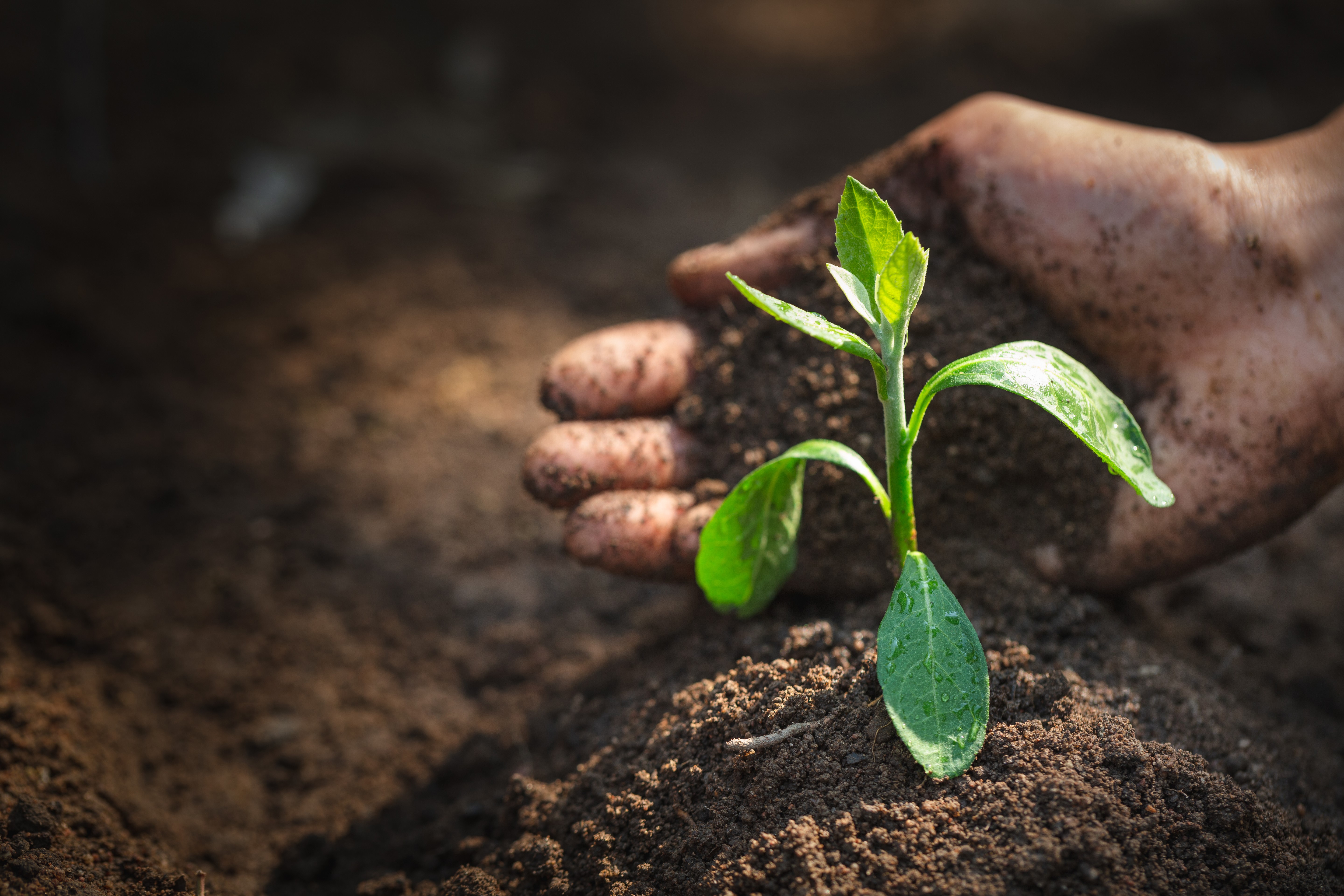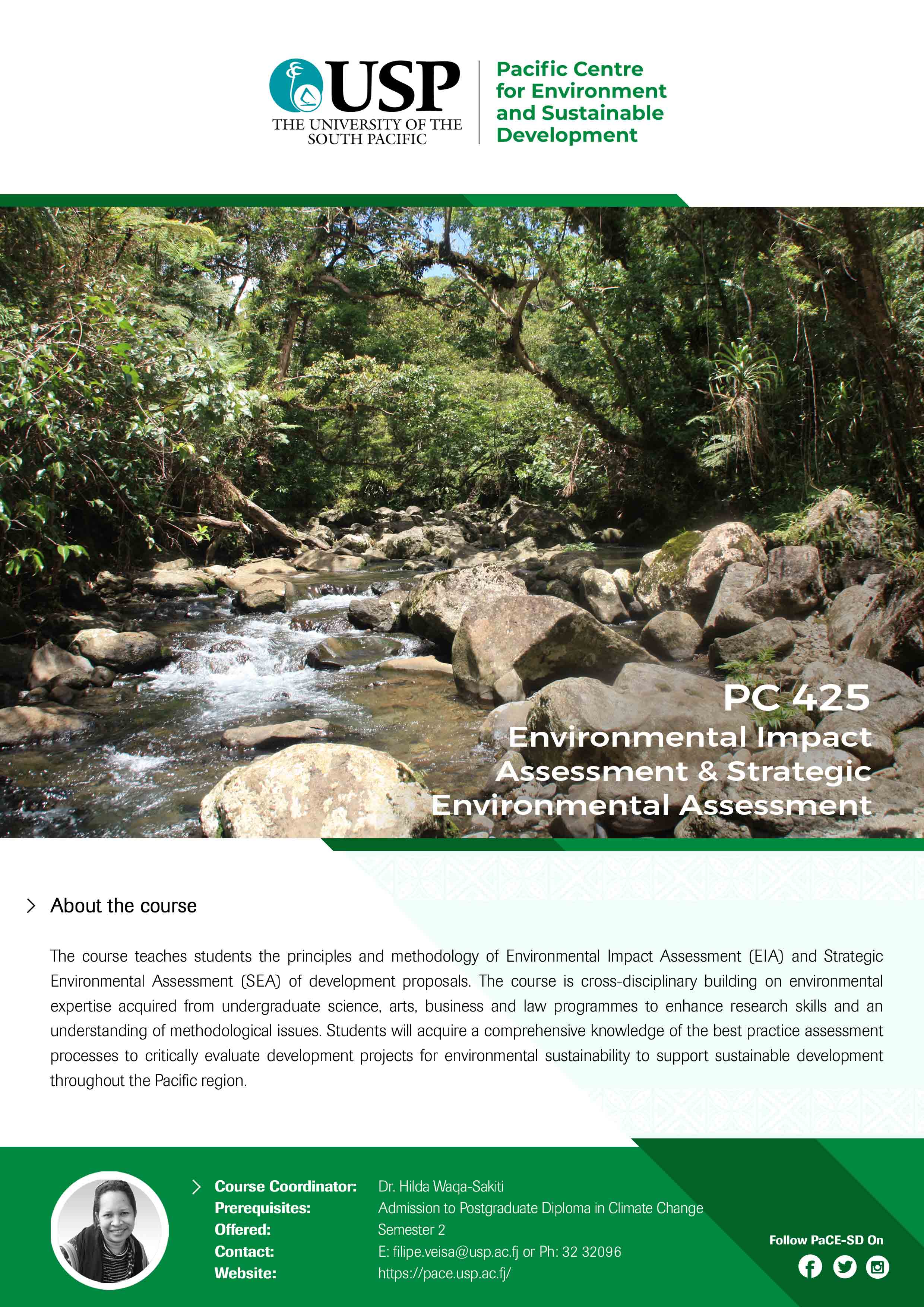At least BI442 Biodiversity & Conservation (Semester 1, F2F) or PC426 Ecosystem – Based Adaptation for Climate and Disaster Resilience (Semester 2, Online) as the mandatory course for this stream and any 1 elective course from the following list:
- EV402 Natural Resources and Environment (Semester 2, Mode: F2F)
- GE407 Advanced Pacific Island Biogeography & Ethnobiology (Semester 1, Mode: F2F)
- MS441 Regional Management of Marine Resources (Semester 1, Mode: F2F)
- BI408 Advanced Environmental Microbiology (Semester 1, Mode: F2F)
- PA419 Contemporary Issues in the Pacific (Semester 2, Mode: Online)
PC 426: Ecosystem – Based Adaptation for Climate and Disaster Resilience 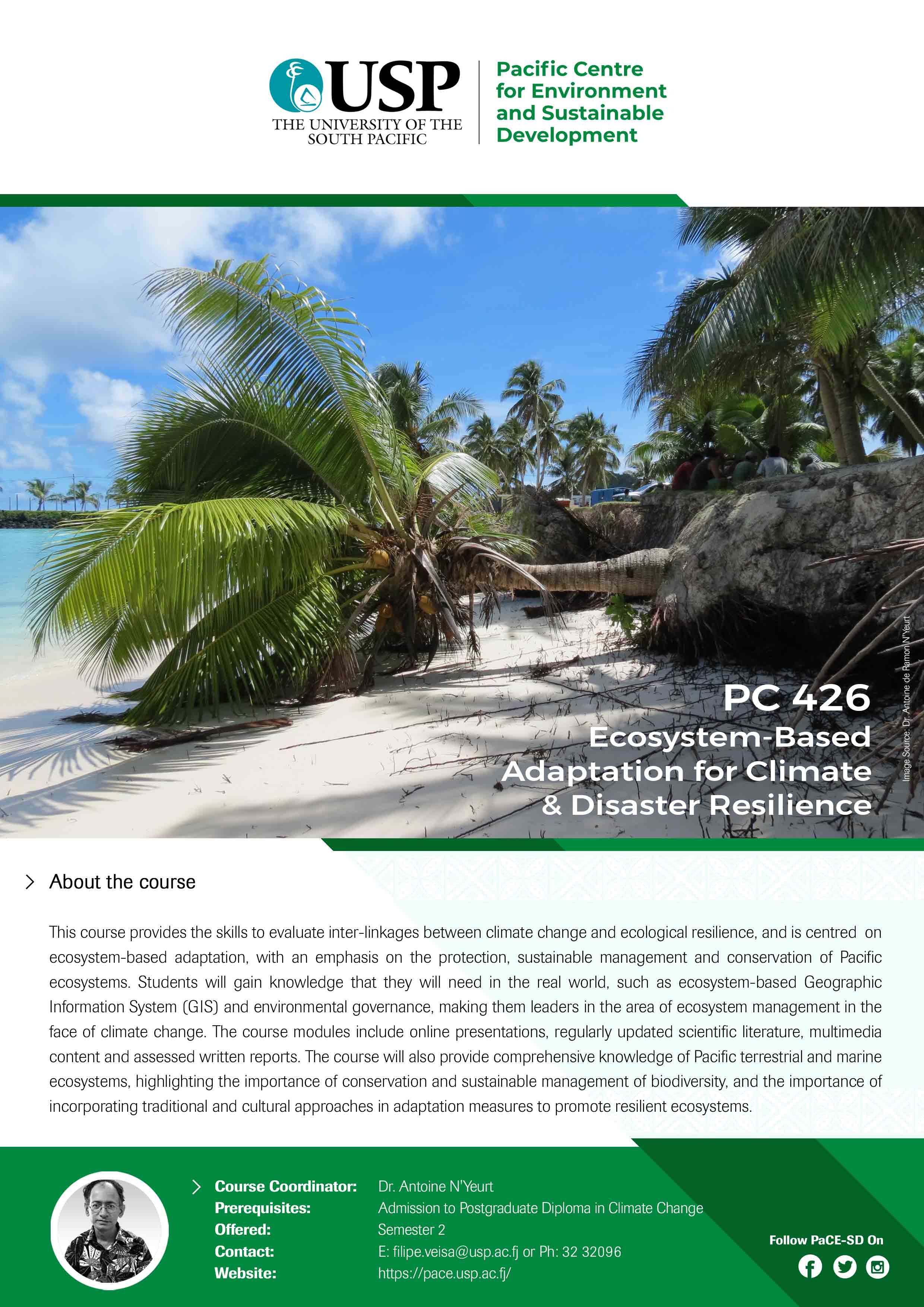
Semester: 2 Mode: Online
Course Coordinator: Dr. Antoine De Ramon N’Yeurt
Course Description: This course is designed to familiarize with the causes and effects of climate change on terrestrial and marine ecosystems in an island setting, the importance of the conservation and sustainable management of biodiversity and linkage to peoples’ livelihood, food security and health. The course will enable one to understand the inter-linkages between climate change and ecology and how to strengthen institutional mechanisms and systems for mobilization and participation of all stakeholders at various levels on the role of ecosystems in climate change mitigation and adaptation management. This course will also equip with tools for ecosystem based adaptation for climate change and help understand the importance of incorporating traditional and cultural approaches.
PC 420: Research Projects in Climate Change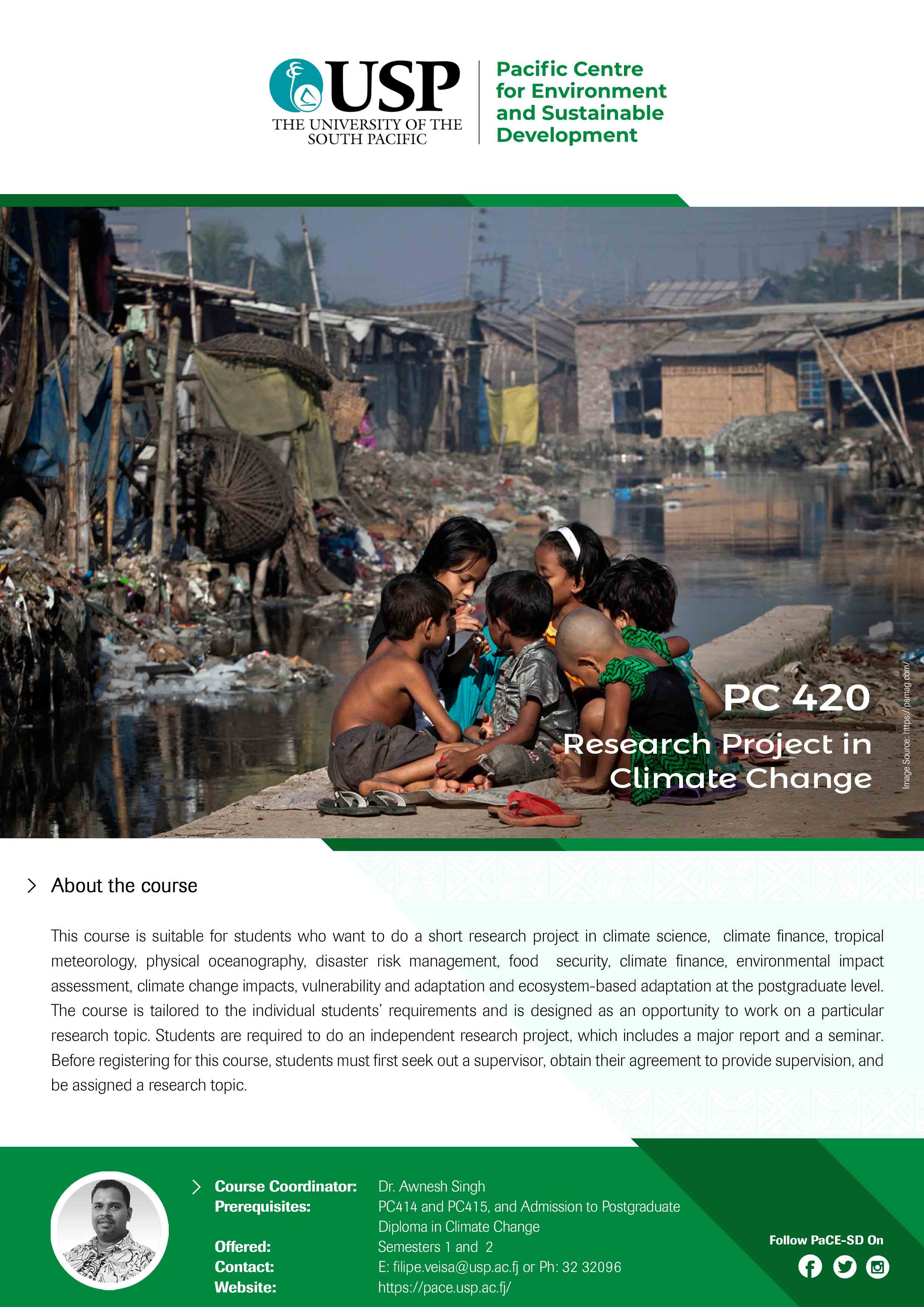
Semester: 1& 2 Mode: Online
Course Coordinator: Dr Awnesh Singh
Course Description: This course provides important insights into the rapidly developing and fast moving realm of climate science among the future climate leaders of the Pacific to understand the scientific basis of the threats of the impacts of CC to develop appropriate measures to address and manage the challenges of the adverse impacts. This course navigates through new scientific evidences on our current scientific understanding of the earth’s climate including those which point at important tipping points leading to perhaps irreversible changes in major systems and ecosystems. The course also provides adequate skill in climatology of the region and the tools/methodology applied in the analyses and is thus useful for those intending to work with national meteorological services or other government agencies.
PC 431: Disaster Risk Reduction for Resilience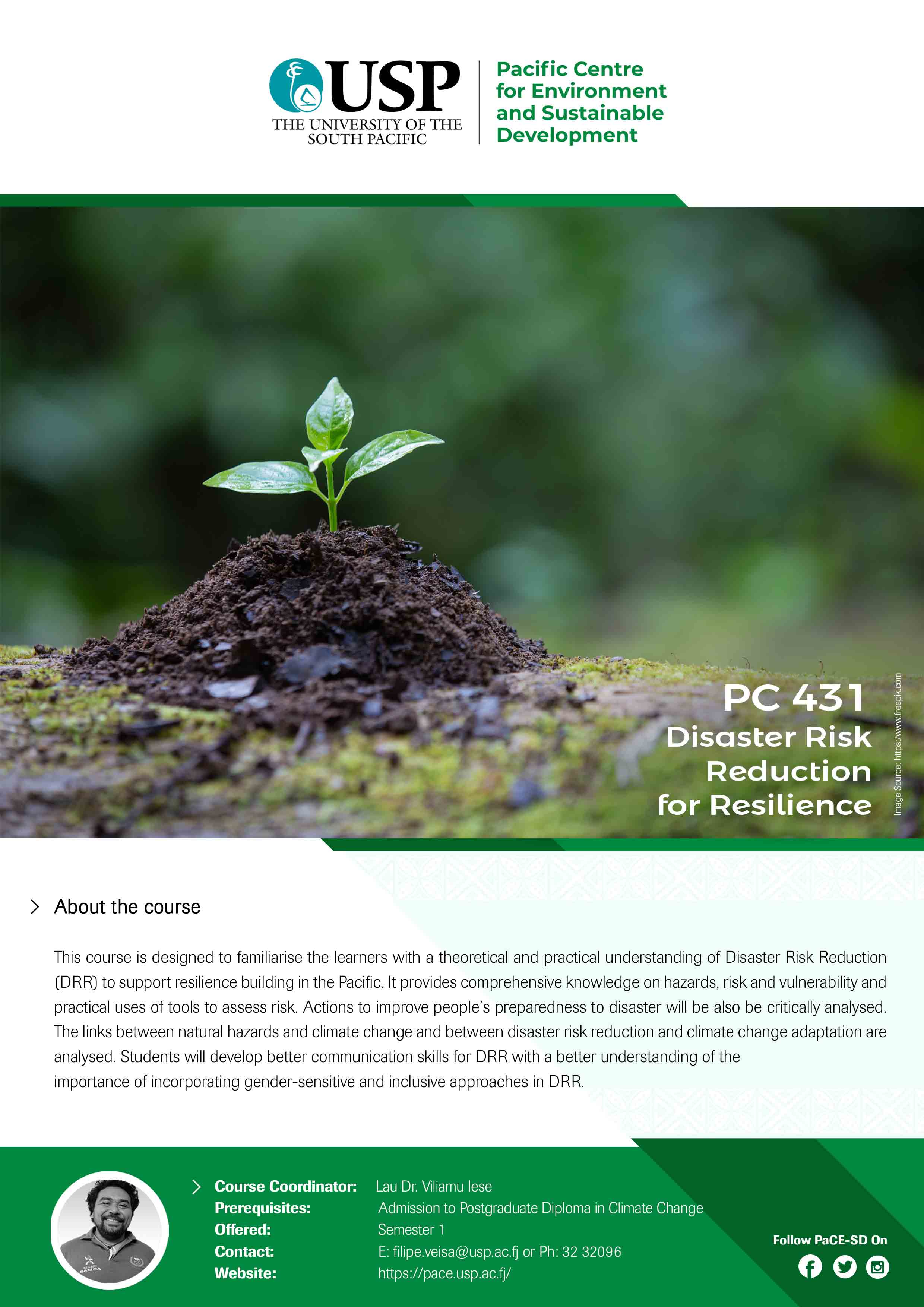
Semester: 1 Mode: Online
Course Coordinator: Lau Dr Viliamu Iese
Course Description: This course is designed to familiarize the learners with a theoretical and practical understanding of Disaster Risk Reduction (DRR) to support resilience building in the Pacific. It provides comprehensive knowledge on hazards, risk and vulnerability and practical uses of tools to assess risk. Actions to improve people’s preparedness to disaster will be also be critically analysed. The links between natural hazards and climate change and between disaster risk reduction and climate change adaptation are analyzed. Students will develop better communication skills for DRR with a better understanding of the importance of incorporating gender-sensitive and inclusive approaches in DRR.
